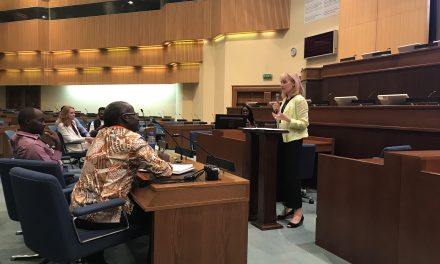Source: Council of Europe
Council of Europe urges states to protect whistleblowers and journalists
Strasbourg, 02.05.2014 –The Council of Europe today called on its 47 member states to fulfil their obligation to protect journalists and other media actors from intimidation and attacks, and to adopt national legal frameworks for the protection of whistleblowers.
The Committee of Ministers – the executive body of the organisation – made this call in a Recommendation on the protection of whistleblowers, and in a Declaration on the protection of journalism and the safety of journalists and other media actors, which it adopted shortly before World Press Freedom Day on 3 May.
In the Declaration, the Committee of Ministers alerts states to the increasing reports of attacks on journalists and other media actors in several parts of Europe, including specific dangers that female journalists face, and urges them to investigate these attacks vigorously in order to bring the perpetrators to justice. Those at risk include not only professional journalists, but also individuals who contribute to inform the public debate, perform journalistic activities or public watchdog functions.(*)
The Committee claims that state authorities often make insufficient efforts to investigate these abuses and crimes, which leads to a culture of impunity. States, the Committee says, should put in place an effective system for protecting journalists and other media actors, and should refrain from subjecting them to judicial intimidation, in particular from the disproportionate application of criminal law provisions relating to defamation, national security or terrorism.
To address these threats to media freedom, the Committee invites member states to review their laws and practices at least every two years to ensure that they comply with international freedom of expression standards.
In the Recommendation, the Committee of Ministers acknowledges that individuals who in the context of their work in the public or private sectors report or disclose information on threats to public interest – usually known as whistleblowers – can contribute to strengthening transparency and democratic accountability.
The Committee recommends that these individuals are protected by national law and offers member states a set of principles to guide them when introducing legislation. Some of these principles are the following:
– As a minimum, protection should be given to whistleblowers who disclose information of public interest concerning violations of law and human rights, and risks to public health, to public safety and to the environment.
– There should be an effective mechanism in place for acting on public interest reports and disclosures (whether they are made within organisations or enterprises, to relevant regulatory bodies and law enforcement agencies, or to the public, e.g. via journalists or parliamentarians).
– Whistleblowers should be protected against retaliation of any form, whether directly or indirectly, and be entitled to have the confidentiality of their identity maintained, subject to fair trial guarantees.
– Whistleblowers’ disclosures should be investigated promptly, and where necessary, the employer and the appropriate body should take action to address the issues of public concern.
– A special scheme of rules may apply to information relating to national security, defence, intelligence, public order or international relations of the state.
———————
* The Russian Federation made a reservation to the Declaration, specifically denying its application to “other media actors”.


